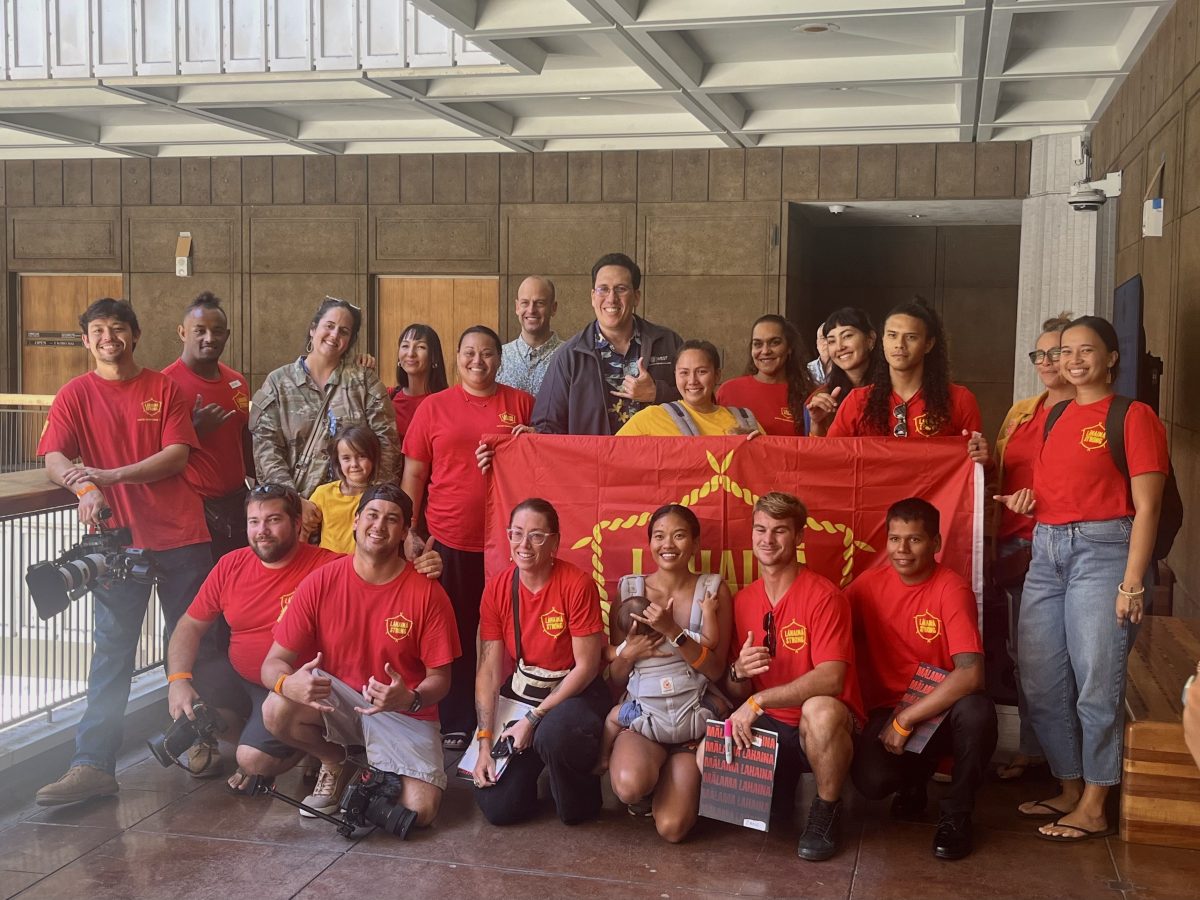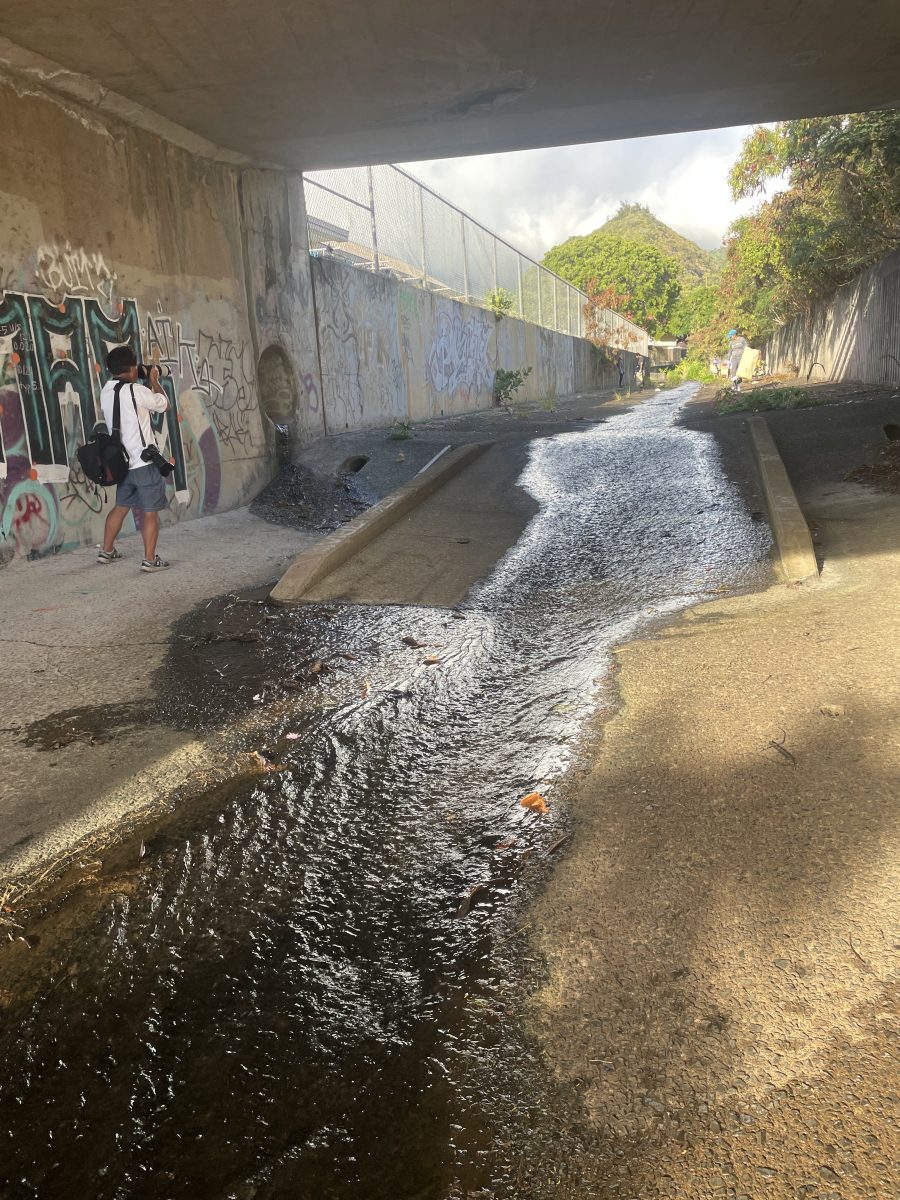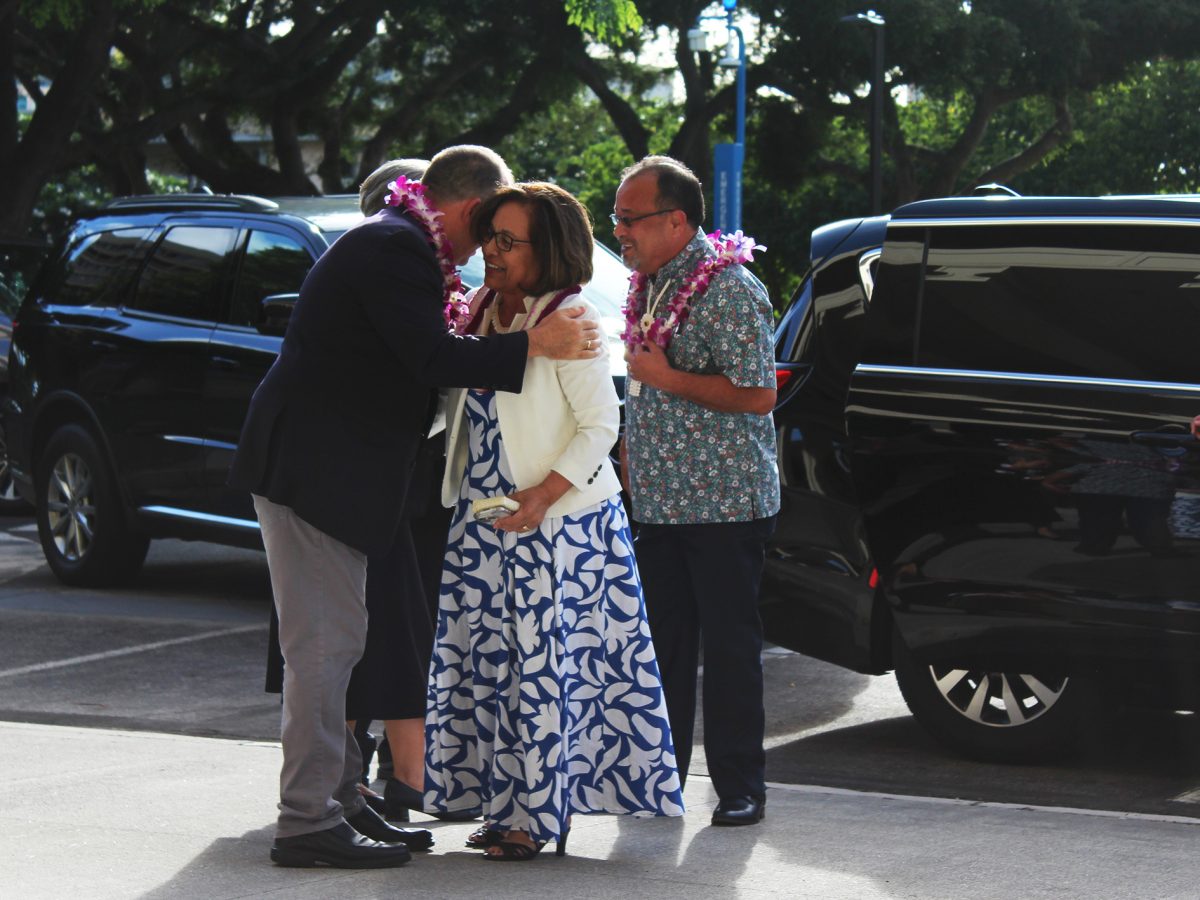In what could be the first domino to fall in a community fight about short-term rentals, SB 2919 cleared both legislative chambers and now is just waiting for the governor to sign the bill into law.
This law would give individual counties the authority to oversee and regulate land use, eliminating gray area in outdated current law, and shifting the fate of vacation rental units, also known as short-term rentals, made popular by such websites as Airbnb.
Gov. Josh Green also already has pledged his support for the bill, and he met with a group called Lāhainā Strong, a non-profit organization raising awareness for Lāhainā after wildfires burned the city to the ground, when they came to O’ahu to urge the passing of this short-term rental bill at the Capitol rotunda late last month.
In the 3-minute, 15-second hearing in the final round of legislative review, there was no opposition present in the conference meeting, with all representatives and senators passing the committee draft. Present for that meeting was more than a dozen of the Lāhainā Strong’s red-shirted members, who celebrated the bill’s passing with a group photo alongside Sen. Jarrett Keohokalole.
“We need to be able to phase out short-term rentals and have it at the state level,” said Lāhainā Strong volunteer Katie Austin. “A bill like this just gives it so much more power for each county to individually be able to phase out how they see fit.”
The bill garnered opposition from such groups as Airbnb, the Hawai‘i Association of REALTORS, Maui Vacation Rental Association and many others who own and manage rental properties in the state. The counties’ newfound power would give them the ability to remove short-term rentals from the islands. Airbnb and MVRA could not be reached for comment.
“I think we have to be a little careful when we make short-term decisions that have long-term impact,” said Artie Wilson, a real estate agent of Artie Wilson & Associates. Wilson has worked in the real estate business in Hawaiʻi for more than 30 years, as well as owning his own business since 2008. “One of the strengths of this community in this state is that real estate has been a thriving industry.”
“But there’s a lot of local people who have done very well in real estate,” Wilson added. “So I just want to caution all the politicians to be cognizant and aware that a short-term stopgap measure could have lasting impacts on the total economy.”
Wilson’s biggest concern for similar bills has always been that the decisions made in Maui for the wildfire relief will repeat and impact the other counties. But after learning the bill gives the power to the counties to make their own decisions on short term rentals, Wilson said his concerns eased.
“That makes sense,” he said, “because I think each county has different needs and opinions. I think that’s very important.”
As written, the bill is not self-executing, meaning it doesn’t lead to any immediate outcomes other than the change of power holdings for this issue. But experts like Keohokalole also point to the Minatoya list — a list of apartments on Maui, which in 1992 were grandfathered into allowing short-term rental use — for a suggestion of where this shift may take things.
The list was created “before vacation rentals were this pervasive problem,” Keohokalole said. “So I would expect some action on that after the bill is passed.”










